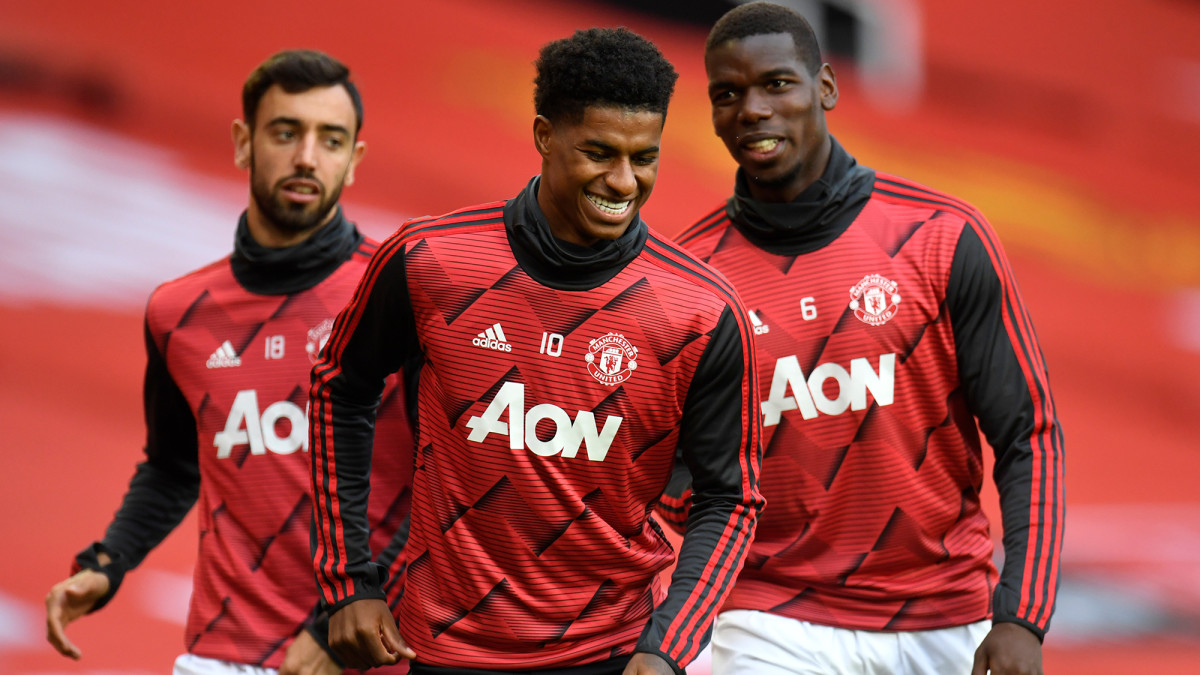Manchester United's Resurgence and the Reasons for Optimism at Old Trafford
It says plenty about how Manchester United has improved recently that its late concession of an equalizer to a rapidly improving Southampton on Monday felt like such a surprise. This was probably Man United’s poorest performance since the restart, and yet it still scored two excellent goals and would have won comfortably but for some chances to put the match away that were missed by Anthony Martial and Marcus Rashford. It’s gone 18 games unbeaten in all competitions now, should be able to overtake Leicester, and perhaps Chelsea, to qualify for next season’s Champions League–and more than that suddenly seems like a team with a plan.
What, then, has suddenly gone right for Manchester United?
The answer lies fundamentally in one man: Bruno Fernandes. It shouldn’t be possible for one player to make such a difference, but his arrival from Sporting CP has made sense of the squad. There is still work to be done, but the front half of the team has suddenly slotted into place. Fernandes was the missing link, the creative force to bind the midfield to the fleet of gifted and rapid attackers.
At the same time, the impact of the coronavirus crisis on football’s economics has benefited United. The assumption all season had been that Paul Pogba would leave. His agent, Mino Raiola, had been making all the familiar noises and, frankly, there seemed little reason for him to stay. It was hard through the fall to make much of a case that United was an improving team or even that it would be in the Champions League next season.

But as clubs retrench, it’s no longer clear who would want Pogba for the wages he would no doubt demand. Besides which, he is 27. If a superclub does feel it can justify one big signing, other names have risen–Jadon Sancho, Kai Havertz, Kylian Mbappe–who not merely make more economic sense but are arguably more exciting. And as Pogba’s options have diminished, so the situation at United has become more attractive.
It’s not just that United is playing better football, it’s that there is a clear role in it for Pogba. He is an unusual player, blessed with a wide array of abilities, the sort of all-rounded modern midfields can rarely accommodate. He has extraordinary technical skill but is not at his best with his back to goal, which demands a deeper starting position, something that meshes with his top traits. But play him as a deep-lying midfielder–even alongside another holder, as France did at the World Cup–and it can feel like his creative abilities are not being fully exploited.
What Pogba needs is the sort of hybrid role he had under Max Allegri at Juventus, and that is what United has now provided for him. In the midfield three, Nemanja Matic sits at the base, Fernandes plays the creative role slightly to the right, and Pogba fills in between them on the left, adjusting himself to the requirements of the game.
With chances being created, the forward line has thrived. Rashford, Martial and Mason Greenwood are all lightning fast, interchange with intelligence and, at the moment, are largely finishing chances with great confidence. Greenwood, at only 18, looks like an extraordinary talent, blessed with two good feet and a ferocious shot with very little backlift.
Some doubts remain. The back four, both as a unit and individually, is not entirely convincing. David De Gea doesn’t seem quite to have recovered from the crisis of confidence that beset him at the World Cup when he struggled playing behind a defense that pushed up and forced him to play increasingly with his feet. The forward line is potent when it has space to attack, but does Ole Gunnar Solskjaer have the managerial wherewithal to instill the sort of patterns necessary to overcome a deep-lying opponent–a skill that has become increasingly important in the modern game?
Regardless, the turnaround since the beginning of the year has been remarkable. No side has taken more points since the league restarted than the 14 claimed in six games by United, and that has resulted in the eight-point lead Leicester had for fourth dwindling to merely a goal-differential tiebreaker, while Chelsea is now only a point further ahead in third with three matches to play. Liverpool is still 34 points in the distance, which should perhaps calm any of the wilder predictions that United might be able to challenge for the title next season, but at least the trajectory now seems to be in the right direction, and there should be Champions League football at Old Trafford next season.
